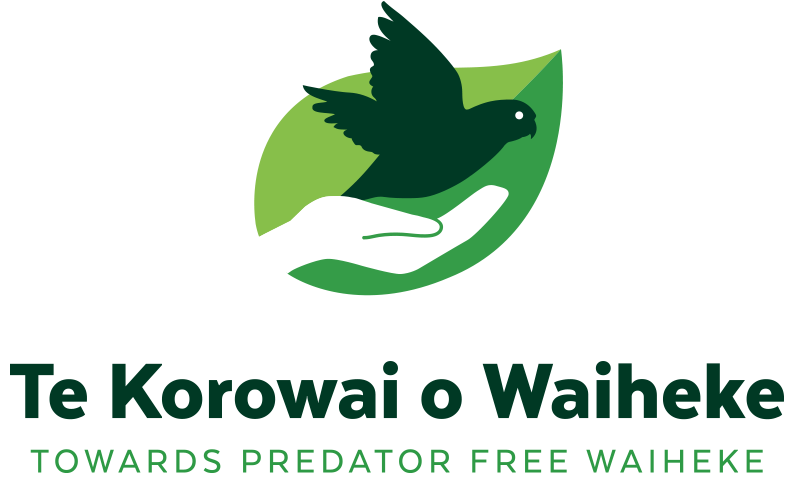FAQ
Do you know how many stoats there are on Waiheke Island?
We are not sure exactly how many stoats are left on Waiheke Island, as the home range of a male stoat can be up to 130 hectares, but they are not territorial. The damage done to native birds from even one stoat is large, given they need to eat a quarter of their body weight every 24 hours. Stoats have been caught all around the island, with the majority caught close to the coast or waterways.
Are the private landowners on Waiheke going to contribute to this?
Two of the large farms on Waiheke, Rarowhara and Man O’ War station, are delivering the stoat eradication trap checks on their farms. Some volunteers are also checking stoat traps on their own properties. These contributions are invaluable.
How many traps will be required on the island?
The stoat eradication programme involves placing traps at regular intervals (approximately one trap per six hectares) across the entire island, which equates to more than 1,600 traps!
What tools other than traps will you use for the stoat eradication?
Stoat detection dogs and detection cameras are used to locate stoats on the island.
How far can a stoat swim?
Stoats usually swim between 1-3 kms, but have been known to swim up to 5 kms. It is therefore possible for a stoat to swim (or ‘island hop’) from mainland Auckland to Waiheke, however luckily there are several predator free islands on their likely swimming paths with robust predator prevention re-invasion programmes, which act like a buffer for Waiheke.
Will my pets be safe with traps laid out across the island?
Every trap is enclosed in a custom designed box that has a series of wire mesh panels with entry holes cut in. The size of these entry holes make it hard for pets to get into the trap area. In addition, the trap boxes either have an elongated entrance area or a weka proof extruder fitted to the outside of the trap box . Please talk to the field team on info@tekorowaiowaiheke.org or 0800 BIRDSONG if you have any specific concerns regarding existing or planned pet additions to your household.

